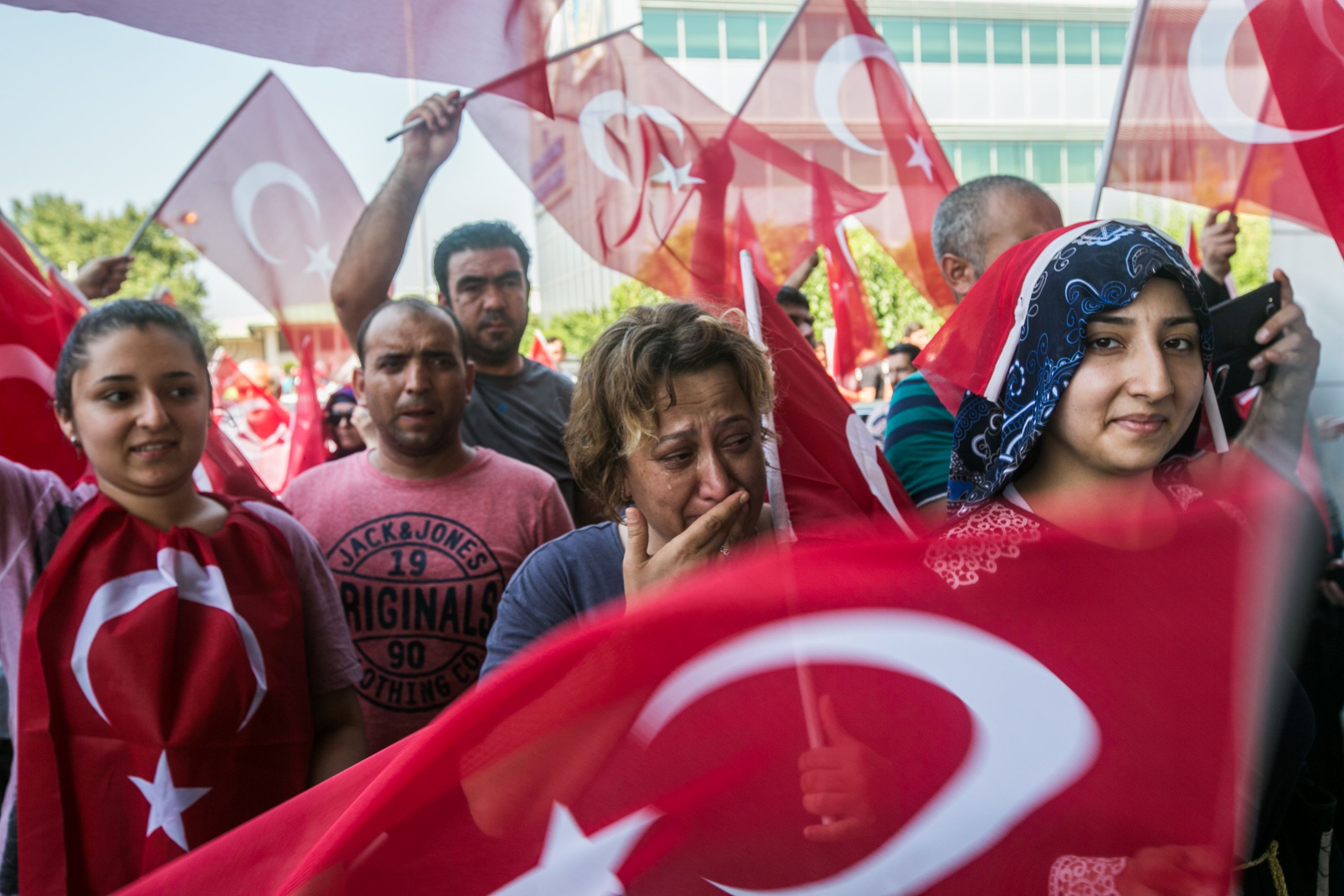Political instability in Turkey, a NATO member and critical U.S. partner in the fight against terrorism, is already threatening to have an impact on the U.S.-led campaign against the Islamic State in Syria and Iraq.
On Saturday, one day after a coup attempt, Turkey closed airspace to military aircraft around Incirlik Air Base, forcing the U.S. to halt air operations at the base, the Pentagon said. Incirlik is the base Turkey lets the U.S. use to launch anti-ISIL missions.
Commercial power to the base had also been cut off, but the U.S. was using an internal power source.
"U.S. officials are working with the Turks to resume air operations there as soon as possible," Pentagon press secretary Peter Cook said. "In the meantime, U.S. Central Command is adjusting flight operations in the counter-ISIL campaign to minimize any effects on the campaign. U.S. facilities at Incirlik are operating on internal power sources, and a loss of commercial power to the base has not affected base operations."
![Gannett-cdn [oembed : 87188074] [oembed : 87188074] [oembed : 87188074] [oembed : 87188074] [oembed : 87188074] [oembed : 87188074]](/Portals/_default/Skins/PrestoLegacy/CommonCss/images/smartembed.png)
![Raw: Protesters, Military on Streets of Istanbul [video : 87165582]](http://videos.usatoday.net/Brightcove2/29906170001/2016/07/29906170001_5037983211001_5037957015001-vs.jpg?pubId=29906170001)
The coup attempt was crushed and the "government is in control," President Recep Tayyip Erdogan said Saturday. About 265 people were killed and hundreds more arrested.
Erdogan vowed that the members of the military responsible for the coup would "pay a heavy price for their treason" and that "those who stain the military’s reputation must leave. The process has started today, and it will continue just as we fight other terrorist groups."
Erdogan's pledge to punish the coup leaders within the military could lead to a broader purge in Turkey's armed forces, which might at least temporarily slow Turkey's effort to fight the Islamic State. Turkey has become a critical U.S. partner in the region.
![Military coup in Turkey: What we know now [oembed : 87177312] [oembed : 87177312] [oembed : 87177312] [oembed : 87177312] [oembed : 87177312] [oembed : 87177312] [oembed : 87177312] [oembed : 87177312] [oembed : 87177312] [oembed : 87177312] [oembed : 87177312] [oembed : 87177312] [oembed : 87177312] [oembed : 87177312] [oembed : 87177312] [oembed : 87177312] [oembed : 87177312] [oembed : 87177312] [oembed : 87177312] [oembed : 87177312] [oembed : 87177312] [oembed : 87177312] [oembed : 87177312] [oembed : 87177312]](/Portals/_default/Skins/PrestoLegacy/CommonCss/images/smartembed.png)
Initially reluctant to actively support U.S. efforts to combat the extremist group, Turkey now permits American planes flying missions against the Islamic State in Syria and Iraq to using the Incirlik base in southeastern Turkey, which puts planes closer to their targets and allows them to stay in the air longer.
Turkey also has been helpful in combating the militants by securing its 775-mile border with Syria to reduce the flow of foreign fighters into Syria to join the Islamic State, also known as ISIS and ISIL, the Pentagon says.
“The United States and Turkey are united in our common fight against ISIL, and Incirlik continues to play a key role in the coalition's counter-ISIL operations,” Pentagon press secretary Peter Cook said earlier this year.
Turkey's security forces play a critical role in defending its borders with Syria.
![AP TURKEY SAUDI SYRIA I TUR [image : 87155446]](http://www.gannett-cdn.com/media/2016/07/15/USATODAY/USATODAY/636042052201656545-AP-Turkey-Saudi-Syria.jpg)
Top U.S. military leaders were “closely monitoring” developments in Turkey and were concerned over the reports of a military coup seeking to oust Erdogan, according to a defense official who asked not to be named because he was not authorized to discuss the issue publicly.
On Saturday President Obama scheduled a meeting with his national security and foreign policy team to discuss the developments in Turkey, the White House said.
A military coup would have presented a dilemma for the Pentagon and NATO, which would be hard pressed to justify continuing to work closely with officers who deposed a democratically elected government.
Robert Pearson, a former U.S. ambassador to Turkey, said the Turkish military has long been a strong supporter of secular government and a critic of government corruption.


![turkey coup [image : 87177274]](http://www.gannett-cdn.com/media/2016/07/16/USATODAY/USATODAY/636042614360729873-AFP-554054461-83375792.JPG)
![Coup attempt spurs chaos in Turkey [gallery : 87148314]](http://www.gannett-cdn.com/-mm-/35e9a459c2a7487e220c92c54e4872ca65b2d036/c=3044-510-3760-1122/local/-/media/2016/07/15/USATODAY/USATODAY/636042071447180142-Turkey024.JPG)
